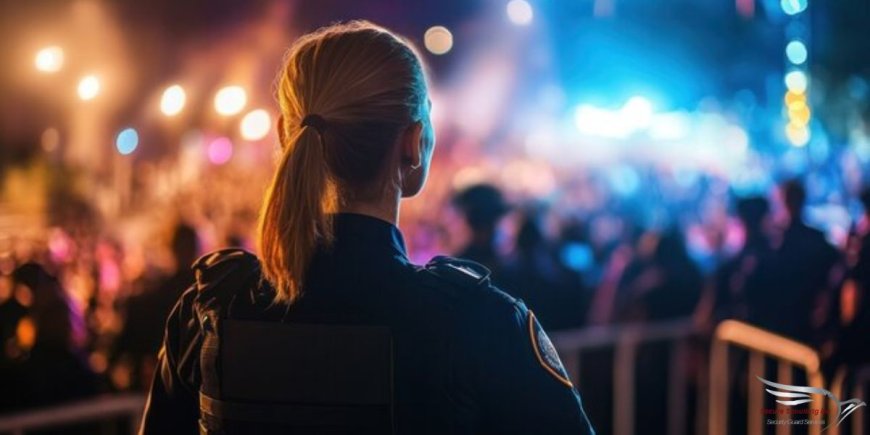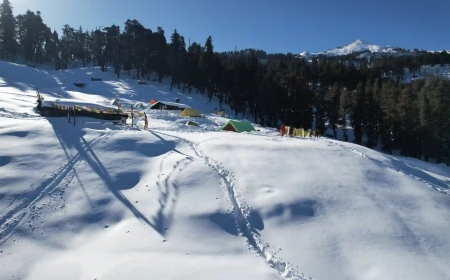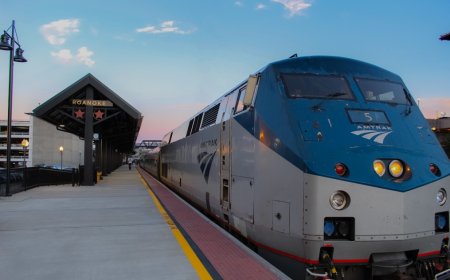Event Security Planning: What Every Organizer Must Consider
Planning an event? Discover key security planning tips every organizer must know to ensure safety, compliance, and smooth event execution.

Organizing a successful event requires more than selecting the right venue and promoting it to the right audienceit also involves ensuring the safety of every attendee, vendor, and staff member. From concerts and conferences to festivals and private functions, effective event security planning is an essential aspect of logistics that can make or break an event. Its not just about preventing trouble, but about creating an environment where everyone can enjoy themselves without concern.
To help you navigate this crucial component, this article covers the key considerations every event organizer must factor into their security strategy.
1. Understanding the Nature of the Event
The first step in security planning is understanding the unique dynamics of the event itself. Is it a large-scale outdoor festival with thousands of attendees? A high-profile corporate conference with VIP guests? A local community gathering with families and children?
Each event type presents different risks and requirements. A political rally, for instance, may require crowd control and protest management, while a product launch may involve managing media presence and securing sensitive information. Factors like venue size, ticketing method, alcohol availability, and performer or speaker profile all contribute to shaping your approach to safety.
By evaluating the specifics early in the planning process, organizers can tailor their security protocols to suit the environment, audience, and potential threat level.
2. Conducting a Risk Assessment
Before deploying any personnel or equipment, a thorough risk assessment should be carried out. This involves identifying potential vulnerabilities, evaluating the likelihood of incidents, and determining their potential impact. Risks may include:
- Unauthorized entry
- Theft or vandalism
- Crowd-related accidents
- Fire or medical emergencies
- Acts of violence or terrorism
During the risk assessment, its essential to collaborate with law enforcement, fire departments, emergency responders, and, if applicable, the venue's internal security team. This multi-agency coordination allows you to map out all possible risks and build a robust response plan.
A detailed security audit of the venue is also crucial, noting access points, blind spots, emergency exits, and escape routes. This data becomes the foundation for a responsive, well-coordinated security framework.
3. Choosing the Right Type of Security Personnel
Once risks are identified, youll need to determine the type of security personnel required. This might include:
- Access control staff to check tickets and credentials
- Patrol officers to monitor perimeters and manage crowd behavior
- Undercover security to blend into the audience and observe unnoticed
- Emergency response personnel trained in medical or crisis intervention
The choice between armed or unarmed personnel should be based on the risk level and the nature of the event. For example, high-profile events with political figures may require armed guards, while community festivals or corporate events may be better served by an unarmed, approachable security presence.
Additionally, all personnel should be clearly briefed on the event layout, communication protocols, and escalation procedures to ensure a coordinated response to any incidents.
4. Access Control and Crowd Management
One of the biggest challenges in large gatherings is maintaining control over who comes in and how they move through the space. Unauthorized access can quickly lead to overcrowding, theft, or disturbances. Thats why clearly defined entry points, wristbands or badges, and credential checks are non-negotiable parts of a security plan.
Designating specific zonessuch as VIP areas, backstage, or press loungesand having clear signage and barriers in place can help manage foot traffic and avoid confusion.
Crowd management strategies should also include:
- Queue lines and stanchions to prevent crowd surges
- Floor staff trained in de-escalation and guest support
- Emergency exits that are clearly marked and never obstructed
- Regular communication with attendees through signs or announcements
By taking these steps, organizers help prevent chaos while ensuring safety and accessibility for everyone involved.
5. Emergency Preparedness and Communication
Even with the best planning, emergencies can occur. The goal of event security planning is to prepare for the worst while hoping for the best. This means having detailed contingency plans in place for various scenariosranging from medical emergencies to natural disasters to potential security breaches.
A few must-haves in your emergency preparedness plan include:
- A centralized communication system for all staff and security
- Emergency contact numbers and coordination with local responders
- First aid stations and access to medical staff
- Pre-designated evacuation routes
- Real-time monitoring through surveillance cameras or mobile patrols
Training sessions or briefings for your team before the event begin are essential. Everyone should know who to report to, how to contact emergency responders, and what to do if something goes wrong.
Communication tools like two-way radios, mobile command centers, or digital apps can be used to connect all security personnel seamlessly. Having a backup communication method is also wise in case of technical issues.
6. Monitoring and Surveillance
To ensure real-time situational awareness, event organizers should implement a blend of manual monitoring and technology. Cameras, motion sensors, and drone footage (where permitted) can all help security teams detect and respond to problems as they arise.
Depending on the venue, live surveillance feeds can be monitored from a centralized command post, allowing for quick deployment of personnel when needed. Surveillance also plays a role in post-event evaluation, offering insight into how incidents occurred and how future protocols can be improved.
However, surveillance must be balanced with privacy considerations. Attendees should be informed of monitoring measures in a transparent and respectful way to maintain trust.
7. Post-Event Review and Reporting
After the event concludes, security planning doesnt stop. Conducting a post-event debrief is critical for understanding what worked and what didnt. Collect feedback from your team, review surveillance footage, document any incidents, and analyze how protocols held up under real-world pressure.
This process not only helps in resolving any pending issues or claims but also ensures your next event benefits from valuable insights gained. A structured post-event review should include:
- Incident reports and response timelines
- Attendance data and entry/exit records
- Feedback from attendees and stakeholders
- Recommendations for future improvements
Continuous improvement is the hallmark of successful event security planning.
Conclusion
Successful events are built on creativity, planning, and above allsafety. By taking security seriously and planning every detail with precision, organizers can create a safe, seamless experience for guests while protecting their reputation and resources.
Whether youre managing a small private function or a large public gathering, your security plan must be customized to the venue, audience, and risk level. From risk assessments and access control to emergency preparedness and post-event evaluations, every piece plays a role in the larger safety puzzle.
Secure Scouting Inc understands the challenges that come with protecting live events. With years of experience in professional security coordination, we offer tailored solutions that align with your goalswithout compromising on guest comfort or event integrity. If youre planning your next big event, let us help you build a security plan that gives you and your attendees complete peace of mind. With expert event security support, your event wont just be safeit will be unforgettable.





































